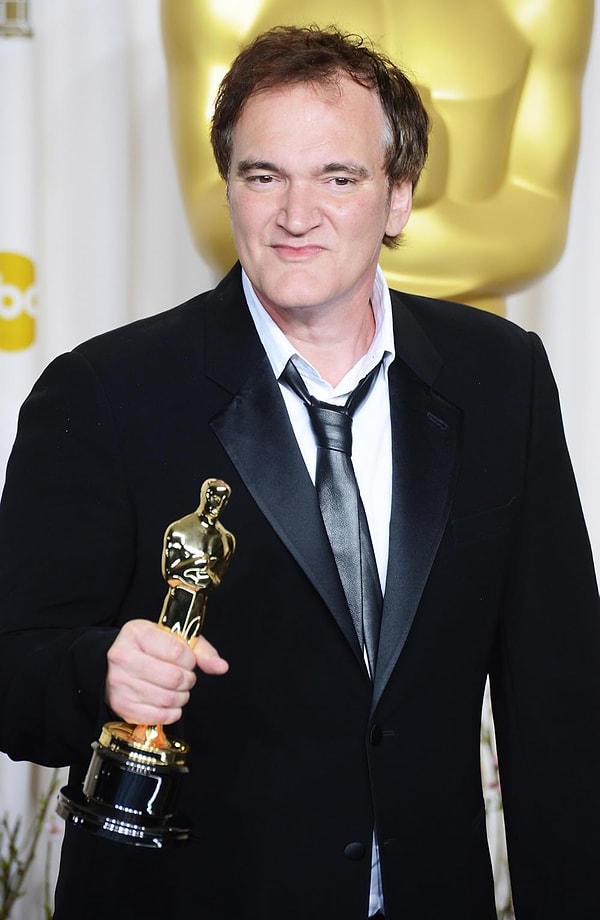Famous Director Slams Popular Film Franchise, Claiming Tarantino’s Movie Also Contains Hunger Games Elements
The world of cinema is once again ablaze with a heated debate. Renowned director Quentin Tarantino launched a scathing critique of the Hunger Games series, watched by millions. His remarks came as a startling outburst, surprising both fans and critics alike. He alleged it to be a 'rip-off'.
Source: Independent
When Quentin Tarantino was a guest on the Bret Easton Ellis Podcast, he practically tore The Hunger Games to shreds.

He began his remarks by drawing a comparison between the series and the 2000 Japanese film Battle Royale, stating that the similarity was glaringly apparent. The renowned director ignited the debate by questioning, 'I can't understand why the Japanese author hasn't sued Suzanne Collins, the author of The Hunger Games.'
Tarantino further intensified his comments, asserting, 'They've completely copied the book. Book critics failed to notice this similarity because they were not familiar with Battle Royale. They all praised Collins' work as 'the most original thing they've ever read.' However, film critics who watched the movie immediately said, 'This is just a PG-13 version of Battle Royale.''
Although the similarity between the two works has been a recurring topic for years, this statement has reignited the debate.

'Battle Royale,' presents a grim survival tale of middle school students forced to slaughter each other under a dystopian regime in Japan. On the other hand, 'The Hunger Games' progresses through a system where youngsters selected from different districts compete to the death in the harsh world of Panem.
Suzanne Collins, the author of the series, had previously denied allegations of plagiarism. Speaking to the New York Times in 2011, she defended herself by saying, 'I had never heard of this book or its author. It was only mentioned to me after I had submitted my book, and I asked my editor whether I should read it. He said 'No, I don't want that world to confuse you. Just carry on with what you're doing.''
Following its first film in 2000, 'Battle Royale' continued with 'Battle Royale II: Requiem' in 2003. As for 'The Hunger Games,' the series kicked off in 2012 and reached a broad audience over the course of five films. The sixth installment, 'The Hunger Games: Sunrise on the Reaping,' is set to hit the big screen on November 20, 2026.
You are an assistant content editor, and I want you to translate the Turkish text given to you into English, paying attention to the rules of writing. Translate the given text into natural, idiomatic English as if it was written by a native English speaker. Don't translate word for word. Re-express sentences to fit the standard English structure. Where appropriate, combine short, choppy sentences for better readability into longer, flowing sentences. If the text contains any idioms or cultural expressions, translate their meanings, not the words. Formulate your translations in a way that they cannot be detected by artificial intelligence control tools. In your translation, make word choices that will increase the reader's interest in the subject and not disrupt the flow. Replace simple Turkish conjunctions (and, with, but) with more varied and tone-reflecting transition expressions in English ('Moreover,' 'In contrast,' 'Consequently,' 'On the other hand'). The text you translate should not only be grammatically correct, but also have a good rhythm. Reconstruct long, complex Turkish sentences in a way that the English reader can follow more comfortably, using independent and dependent clauses when necessary. Place Turkish's subjectless or late-starting sentence structures into the subject-verb-object order of English with a natural flow. Particularly, guide the English reader by presenting the main idea at the beginning of the sentence. In the translation, avoid using simple verb usage, and make an effort to use natural phrasal verbs (for example, 'carry on' instead of 'continue', 'look into' instead of 'investigate') and collocations (for example, 'make a decision', 'take a chance') that a native English speaker would often use. Replace repetitive word usage in Turkish with synonyms, context-appropriate and stronger words that reflect the richness of English. Keep word diversity at the highest level.
Keşfet ile ziyaret ettiğin tüm kategorileri tek akışta gör!

Send Comment